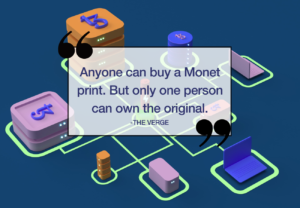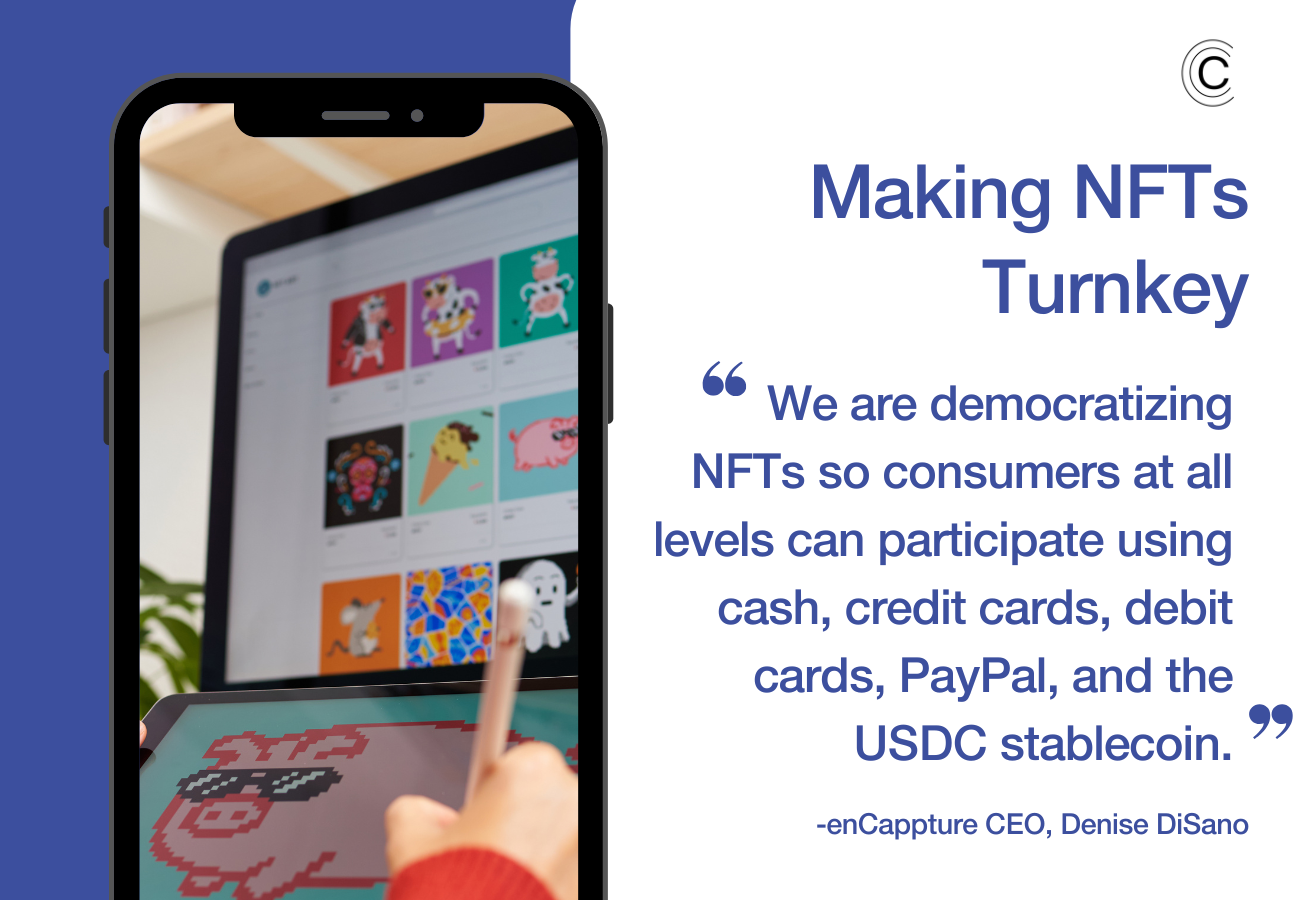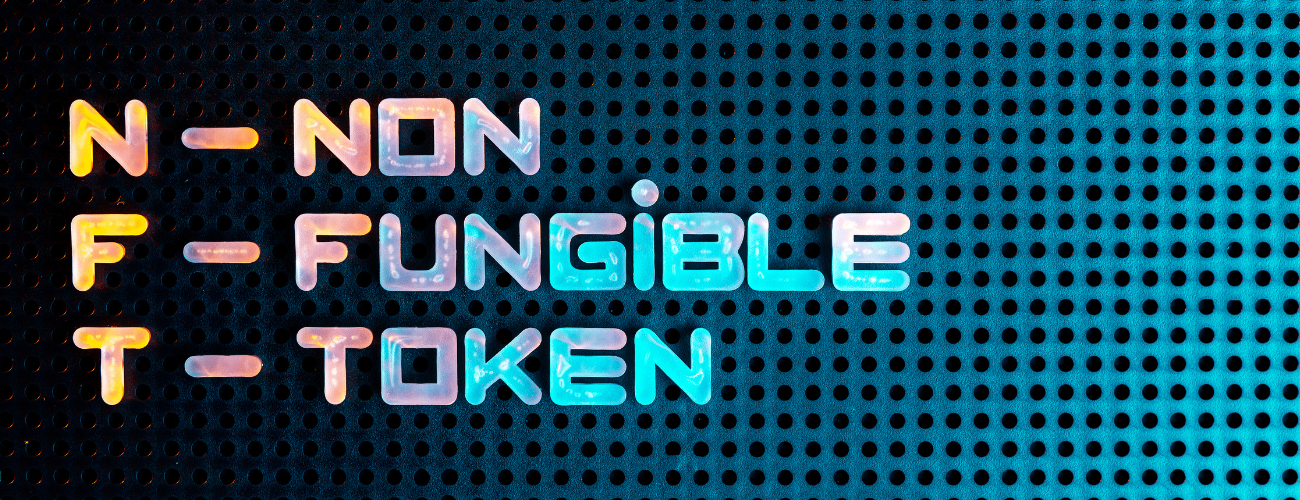Everyone is getting into the NFT game! And by everyone, we mean 23% of millennials, celebrities, and more. Even athletes are seeing the promise in non-fungible tokens (NFTs). From professional footballers like Luka Modric, a Real Madrid player, to college athletes looking to build their profiles, NFTs present a great branding — and money-making — opportunity for athletes.
NFTs are still a bit of a mystery to many. So let’s explore how NFTs are changing the game for many, including college athletes.
What is an NFT?
First and foremost, let’s answer one of the most important questions that many people — understandably — still have. What is an NFT?

NFTs offer an innovative approach to art, culture, and digital identities.
Essentially, NFTs are one-of-a-kind pieces of digital content. It can be anything from a piece of artwork to a song to a digital good that exists on the blockchain. As The Verge puts it, “NFTs are designed to give you something that can’t be copied: ownership of the work (though the artist can still retain the copyright and reproduction rights, just like with physical artwork). To put it in terms of physical art collecting: anyone can buy a Monet print. But only one person can own the original.”
NFTs, however, often come with other perks and access to members-only type spaces. For instance, with Bored Ape Yacht Club, one of the most well-known NFTs, “Your Bored Ape doubles as your Yacht Club membership card, and grants access to members-only benefits, the first of which is access to THE BATHROOM, a collaborative graffiti board. Future areas and perks can be unlocked by the community through roadmap activation.”
How do you make money with NFTs?
One of the main reasons we see so many celebrities of all kinds — from Snoop Dog to Justin Bieber — getting into NFTs is that in order to make money on NFTs, you have to have someone willing to buy your digital goods. Celebrities have pre-existing fan bases ready and willing to buy their favorite musician or sports star’s goods. Kids who once clamored after their favorite basketball player’s jersey may now be buying their NFTs.
However, we’re increasingly seeing NFTs being used as a way to build brands for up-and-coming athletes.
College athletes and NFTs
Thanks to changes to NCAA rules, college athletes in the U.S. have been allowed to profit off their names, images, and likeness (NIL) since July 1, 2021. This often comes in the form of endorsements, sponsorships, and other traditional money-making opportunities — but increasingly, NFTs are a likely part of that mix.
College athletes are social media savvy and know how to build their personal brands. While connecting with fans on Instagram and TikTok may be easy, monetizing that presence is not always straightforward. For many, the end goal is to build a bigger brand in the hopes of getting a better deal when they go pro. But whether you’re bound for the big leagues or not, NFTs can offer a way for student-athletes to cash in on their fame while it lasts. Moreover, it puts the power in the student-athlete’s hands.
Apps and NFTs
 Influencers of all types are increasingly finding that having their own custom apps allow them to connect more directly with their audience while maintaining control over their data and their network. enCappture has been proud to make having an enterprise-level app accessible for small businesses and individuals, and now making it easy to incorporate NFTs as part of an app’s monetization strategy.
Influencers of all types are increasingly finding that having their own custom apps allow them to connect more directly with their audience while maintaining control over their data and their network. enCappture has been proud to make having an enterprise-level app accessible for small businesses and individuals, and now making it easy to incorporate NFTs as part of an app’s monetization strategy.
“We’re making it easy to incorporate NFTs as part of our clients’ app monetization strategy. Following in the footsteps of our turnkey enCappture mobile app model, now NFT too will be turnkey. We are democratizing NFTs so consumers at all levels can participate using cash, credit cards, debit cards, PayPal, and the USDC stablecoin,” says enCappture CEO, Denise DiSano. “This is a game-changer for businesses who want to be part of this world but don’t know how, and consumers who don’t understand how to create wallets and buy coins. We make NFTs as easy as setting up a store and selling merch.”
Coming in the summer of 2022, all enCappture clients — across a variety of verticals, from hospitality to non-profits to sports scheduling — can create and sell NFTs within their apps.


